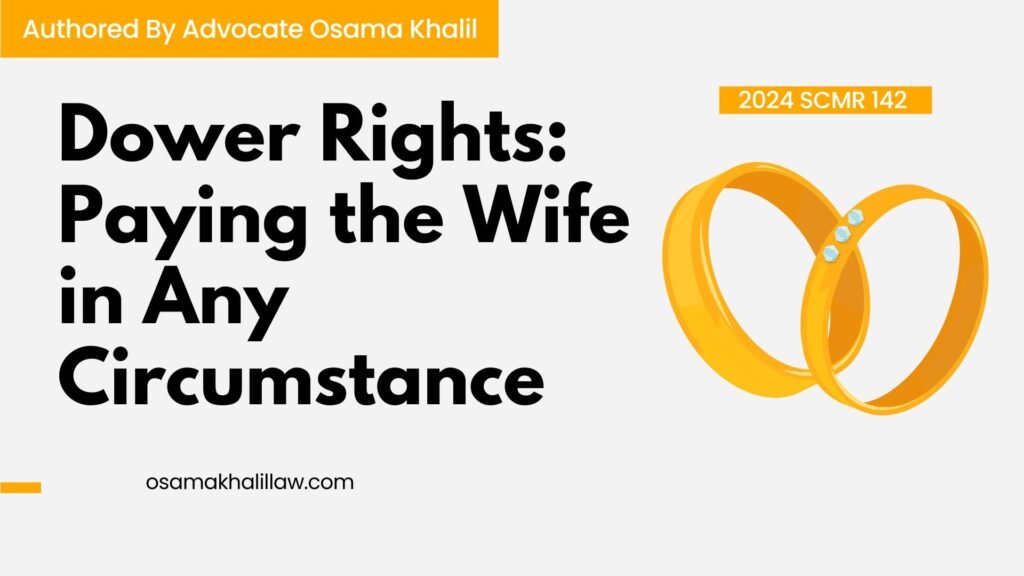
The concept of dower, a mandatory payment from husband to wife in Islamic marriages, holds significant importance. A recent judgement by the Supreme Court of Pakistan has reaffirmed a wife’s right to claim her dower, even during the subsistence of the marriage. This article explores this landmark decision and its implications.
Case Title: Khalild Parvez Vs Samina and others
Citation: 2024 SCMR 142
Dower: A Wife’s Right
Dower rights of wife are more than a financial transaction; it signifies respect and recognition of the wife’s contribution to the marriage. The Quran (verses 4:4 and 2:236-7) mentions dower, and Pakistani law, specifically the Muslim Personal Law (Shariat) Application Act of 1962, reinforces this right.
Case Highlights Wife’s Struggle
The case involved a wife who was denied her dower by her husband. Despite the agreed-upon amount being mentioned in the nikahnama (marriage contract), the husband refused to pay. This forced the wife to file a lawsuit in a family court to claim her rightful dower.
Court Recognizes Wife’s Right and Criticizes Husband’s Actions
The Supreme Court, led by Chief Justice Qazi Faez Isa, ruled decisively in the wife’s favor. The court clarified that Section 10 of the Muslim Family Laws Ordinance (1961) allows a wife to demand her dower at any time. The husband’s argument that dower is only payable after the dissolution of marriage was deemed invalid.
Furthermore, the court criticized the husband’s actions. Not only did he fail to fulfill his marital obligation, but he also dragged the case through various courts for over six years, causing unnecessary hardship to his wife. This kind of frivolous litigation, the court emphasized, burdens the entire judicial system.
Court Imposes Costs and Sets an Example
To discourage similar cases and compensate the wife for her ordeal, the Supreme Court imposed costs on the husband. He was ordered to pay the dower amount alongside compensatory costs. The court also empowered the Family Court to enforce the order if necessary.
Conclusion
This judgement serves as a significant precedent about the dower rights of wife. It upholds the wife’s right to dower and discourages frivolous litigation. By imposing costs, the court sends a strong message to those who disregard their marital obligations. This judgement paves the way for a more just and equitable system for married women in Pakistan.
If you need assistance with dower or family related matters, you can contact us at +92-316-1829946 or contact@osamakhalillaw.com
